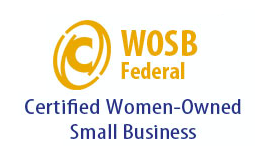
Susan Colantuono, is the former CEO of Leading Women, a consulting firm acquired by Leading NOW. Colantuono spoke with Diversity Executive magazine. Below are edited excerpts from the interview.
Can you describe The Missing 33%® of a woman's professional background that keeps her from reaching the top?
As women move up, we get to a point where future opportunities rest on our perceived potential for leading the business, not just leading the people. When determining whether a woman can lead the business, executives look for business, strategic and financial acumen. This is what I call The Missing 33%® of the career success equation for women — not because women don't or can't have business, strategic and financial acumen, but because very few women are clearly told how essential these skills are for reaching the top.
Why are women missing this element in their professional development?
Women receive career success guidelines from three primary sources: formal performance appraisals and talent development systems, formal or informal mentoring/coaching and other informal sources, including all the conventional sources of career success advice in women's books (for example, “Lean In” by Sheryl Sandberg), articles and other media. None of these gives proportional weight to the advice that to get ahead you have to have proven and perceived business, strategic and financial acumen.
Women are constantly coached on confidence and leadership — why do mentors think they need these more than business acumen and financial proficiency?
Coaching or mentoring on confidence and leadership is important. As a matter of fact, business, strategic and financial acumen enable women to fulfill my definition of leadership — "Leadership is using the greatness in you to achieve and sustain extraordinary outcomes by engaging the greatness in others.” There are other reasons why mentors are more likely to coach women on confidence and interpersonal and team skills. For most executives, the importance of business, strategic and financial is a given. It doesn’t cross their minds that women are interested in, need and are not getting these skills. Another reason is that very few mentoring or coaching curricula prepare mentors or coaches to address these areas. And a third is that instead of stressing women’s capabilities, much of the writing about women and careers focuses on our deficits — we need to be more confident, to negotiate better, to self-promote more.
Does this mean women should ignore advice about confidence and leadership?
It's important for women to exhibit confidence — and there's no stronger platform for confidence than a complete understanding of your business and how you contribute to key outcomes. This is true whether you're leading as an individual contributor, supervisor, manager or executive.
What can HR leaders do to effect a change in this important development area?
HR plays a very important role in four ways. First, ensure that your performance management system appropriately weights business, strategic and financial acumen as they are demonstrated at each level. Second, ensure that your leadership model doesn't overemphasize engaging others or personal greatness at the expense of business attributes. Third, if you sponsor a formal mentoring program, help the proteges look for mentoring on the business of the business, and not just on confidence-building or career advice. Fourth, our research indicates that men are more likely to informally mentor men on The Missing 33%®, so it's important to provide education on the gender dynamics that create barriers for women.
Can you describe in an example or anecdote what you mean by business acumen?
An individual contributor who had to deliver a project update heard about The Missing 33%® and decided that she wanted to report on the financial impact of her project — something that none of her peers had ever done. She asked to meet with a manager from the finance department to help her calculate the financial impact and wove the numbers into her update. Her peers appreciated the scientific content she was reporting on, but she got praise from her managers about the story she told by using the numbers.
In addition to the example of the scientist, here's one of my favorites — I call it knowing your positional purpose. If the CEO sat next to you at lunch and asked, "What do I pay you to do around here?" someone in HR without business acumen might answer, "I’m a recruiter in HR." Someone with business acumen would answer, “You pay me to drive top-line growth by filling the sales openings in our new market."
Mary Camille Izlar is a former editorial intern at Diversity Executive magazine. She can be reached at editor@diversity-executive.com.
If you're ready to learn more about applying what you've read...








